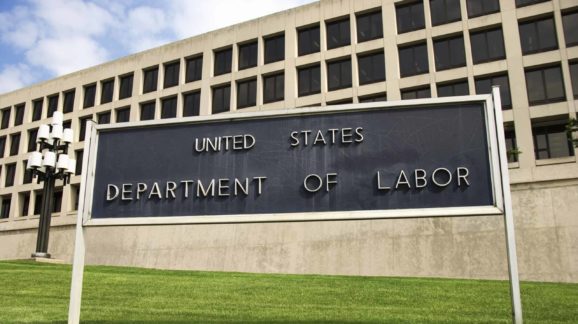Can Pensions Be Saved from Political Mismanagement?

Photo Credit: Getty
The Department of Labor is currently working on a new rule that would give pension fund managers greater leeway in considering non-financial criteria when deciding how to invest the funds they control. This proposed rule would repeal important safeguards put in place under the leadership of the previous Secretary of Labor, Eugene Scalia. The Competitive Enterprise Institute is opposing this proposed rule, and today we have filed a comment letter with the Department of Labor expressing our concerns.
The letter focuses on the controversial use of environmental, social and governance (ESG) topics in selecting pension plan investments, and includes four sections:
- ESG-Themed Investing or Investing-Themed Activism?
- ESG Activism Is an Alternate Route for Failed Policies with a Democratic Deficit
- ESG-themed Investment Criteria Are Inherently Less Rigorous
- Don’t Assume That Federal Agencies Have ESG-Related Authority
These categories are similar to the topics addressed in the comment letters that CEI submitted in July 2020 and September 2020, which were in approval of two current rules, both of which the new proposal would replace. The most important point is that the law that governs private pension plans, the Employee Retirement Income Security Act (ERISA), requires investment managers to focus entirely on providing returns to their beneficiaries. Some politically motivated industry players would prefer to also use non-financial ESG considerations to select plan investments. That conflicts with the law, and the Department of Labor should have rules stopping pension fiduciaries from shirking their duty. That’s what’s at issue.
As I wrote today for National Review, this loosening of discipline on pension managers could become a significant threat to the retirement security of American workers. Promoters of ESG theory have shown an alarming propensity for relabeling and redefining long-established concepts when it suits them:
Consider what happened last summer, when many public demonstrations and protests (some of which degenerated into riots) were violating Covid-inspired bans on large public gatherings. If the pandemic is so serious that all church services were banned, many Americans asked, why are anti-law enforcement protests allowed? The logically flexible answer was easy: racism is itself a public health threat. Thus, there was no conflict between forbidding all other public gatherings because of Covid and allowing protests against abuse of police powers. A single sentence simultaneously moved the goalposts on the two biggest public-policy issues in the country, all with no new laws or regulations having to be proposed, much less debated or enacted.
The same thing can happen to your retirement savings. All a pension-fund manager will have to do under the proposed rule is to make the argument that society, and therefore the economy, will be better off in a world where ESG goals are enacted. Over the extended time horizons that the Biden rule encourages, that will be easy and non-falsifiable. ESG-motivated investment managers will then have a free hand to invest in any ideologically motivated venture that, say, promises to end racism and create unlimited solar power, whether or not a conventional analysis would find those to be reasonable investment considerations for a pension fund. If it’s going to make the world a better place in the future, that’ll be good for everybody, including pension beneficiaries, right?
Today is the deadline to file comments on the Department of Labor’s current rule proposal, known as “Prudence and Loyalty in Selecting Plan Investments and Exercising Shareholder Rights” (RIN 1210-AC03). After today, the department staff will take several months to read through the comments—already over 3,000—and craft a final rule. As always, it’s possible that the final proposal will change significantly in response to the material that has been submitted during the comment period.